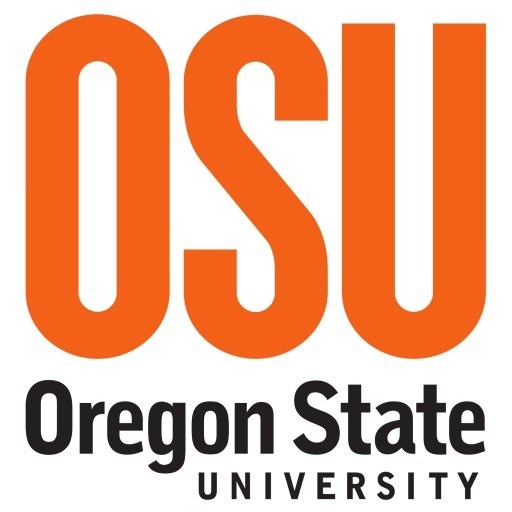Motor Vehicle Engineering MSc at Glasgow Caledonian University offers students a comprehensive understanding of modern automotive technology, focusing on the design, development, and maintenance of vehicles. This postgraduate program is tailored for those seeking to advance their careers in the automotive industry by gaining in-depth technical knowledge and practical skills needed to innovate and improve vehicle performance, safety, and sustainability. The curriculum combines core engineering principles with specialized modules that cover areas such as engine design, vehicle dynamics, electric and hybrid vehicle systems, and vehicle electronics. Students will also explore cutting-edge topics related to automotive safety, emissions control, and emerging trends like autonomous vehicles and smart transportation systems. The program is delivered through a mix of lectures, workshops, laboratory work, and industry projects, providing a blend of theoretical knowledge and hands-on experience. Students will have access to state-of-the-art facilities and collaborative opportunities with industry partners, ensuring that they stay at the forefront of technological advancements in the automotive sector. The MSc in Motor Vehicle Engineering prepares graduates for careers in automotive design, research and development, testing, quality assurance, and technical consultancy. It also offers pathways for further research or doctoral studies. The program emphasizes critical thinking, problem-solving, and innovative approaches to engineering challenges, equipping students with the skills necessary to contribute effectively to the evolving automotive industry. Graduates will be well-positioned to take on roles within multinational companies, engineering consultancies, and government agencies focused on transportation and vehicle safety. Overall, this degree provides a robust foundation in motor vehicle engineering, combining academic excellence with practical application to meet the demands of a rapidly changing technological landscape.
Detailed Course Facts
Application deadline We're happy to accept students right up to when our courses begin, as long as there are places available Tuition fee- GBP 13250 Year (EEA)
- GBP 13250 Year (Non-EEA)
Tuition fees do not include:
- text books and other learning materials: an additional cost in the region of £170 per academic course (three term), £230 per academic course (four term), £290 per academic course (five term) ;
- enrolment fee: an additional charge of £150 per academic programme (to be charged upon confirmation) ;
- lab fee: an additional £325 per year to cover the use of laboratory facilities (only applicable to science based courses)
- English
Course Content
You will study the following modules:
English for Academic Purpose and Study Skills, including ICT
- You will look at reading techniques and writing styles as well as developing your note taking and presentation skills. Additionally you will learn how to use dictionaries and other study aids.
Cells and Biomolecules
- This module introduces the structures and functions of carbohydrates, lipids, nucleic acids and proteins and studies the role of these biomolecules, enzymes and energy in cellular processes such as glycolysis, fermentation, cellular respiration, b-oxidation and photosynthesis.
Chemistry
- Students will begin with a study of the concepts of atomic and molecular structures, and continue to examine the stoichiometry, kinetics and mechanisms of reaction. Other topics covered include organic functional group reactions, the stereochemistry of simple organic molecules and chemical equilibria.
Introduction to Genetics
- This module considers structure and synthesis of DNA, RNA and proteins; chromosome structure, Mendelian genetics and inherited human disorders; and introduction to molecular biology.
Mathematics and Statistics of Experimentation
- This module is designed to provide a basic introduction to the theory and application of mathematical and statistical methods within the biological sciences. Practical statistical work will be carried out using an appropriate statistical package.
Physiology
- This module considers various regulatory mechanisms that underpin key activities of major body systems. This is followed by a more detailed study of physiological detection and control systems: endocrine and reproductive physiology, the nervous system and the special senses, and nerve-muscle physiology.
Practical Skills for Biosciences 1
- The module will introduce students to the Departmental and University Health and Safety Policies, risk assessment, the control of substances hazardous to health (COSHH), and good laboratory practice. A range of specific practical/laboratory skills such as microscopy, pipetting, spectrophotometry and physiological measurement will be introduced and developed with emphasis on ensuring students gain a basic level of competence in these skills.
Practical Skills for Biosciences 2
- Practical skills such as solution preparation, spectrophotometry, calibration curve preparation, assay techniques, separation techniques (TLC, column chromatography and gel electrophoresis), and basic molecular biology and enzyme kinetics techniques will be developed to ensure students gain competence in these skills.
How will I be assessed?
Grades from the programme do not count towards your final degree, but help the University determine whether you meet the specified progression grades for direct entry to your chosen degree programme.
Assessment is both formal and informal. Informally you will receive advice and feedback throughout your programme from your teachers. You will also be assessed by a combination of examinations at the end of each semester, and coursework which may include written assignments, reports, practical exercises, a design portfolio, group and individual research projects, presentations and problem-solving exercises.
Audience
If you have completed secondary school education in your home country, the International Certificate of Higher Education programme provides academic preparation for first year entry and ensures that you meet the minimum English language requirement for entry to your chosen undergraduate degree programme. In some circumstances you may be able to enrol on the Foundation programme in order to change your specialist subject.
This course is not available for UK or EU students.
English Language Requirements
IELTS band : 4
To study at this university, you have to speak English. We advice you to
take an IELTS test.Requirements
Academic requirements:
You need to have completed 12 years of schooling (or the local equivalent to meet the same standard) with very good grades, or show strong evidence of ability to complete the programme successfully and progress to their chosen degree.
For information about country-specific entry requirements please contact us.
English requirements:
Five term programme: IELTS 4.0 or equivalent
Four term programme: IELTS 4.5 or equivalent
Three term programme: IELTS 5.0 (with a minimum of 4.5 in writing) or equivalent
We can also accept Pearson (PTE). Please contact us for further details.
If you do not meet the minimum English language requirements you should apply for English for University Study.
Age:
17 years and above
All students commencing courses on a published September start date must be 17 years old by 31st December of that calendar year. For all other start dates, students must be 17 years old on the published start date of the course.
Work Experience
No work experience is required.
Related Scholarships*
- Academic Excellence Scholarship
"The Academic Excellence Scholarship can provide up to a 50 % reduction in tuition per semester. These scholarships will be renewed if the student maintains superior academic performance during each semester of their 3-year Bachelor programme. The scholarship will be directly applied to the student’s tuition fees."
- Access Bursary
Bursary for UK students all subjects where the variable tuition fee rate is payable.
- Alumni Bursary
Alumni Bursary for UK Undergraduate students
* The scholarships shown on this page are suggestions first and foremost. They could be offered by other organisations than Glasgow Caledonian University.
Funding
Scholarships
High achievement is important to INTO and its students. We reward the academic success of the best students and in 2010 gave over £1m in scholarships that helped fund their studies.
If you have a strong academic record you will have the opportunity to apply for an INTO scholarship. These recognise those that have worked hard to join us and have the potential to go on to study at the highest levels. Every study centre offers scholarships and each application is considered with great care.
The MSc in Higher Education in Science at Glasgow Caledonian University is designed to equip graduates with the theoretical knowledge and practical skills necessary to excel in higher education environments within scientific disciplines. This programme aims to foster a deep understanding of contemporary issues in science education, including curriculum development, pedagogical strategies, assessment techniques, and the integration of technology in teaching. It is suitable for science educators, researchers, and professionals seeking to enhance their academic careers or to develop new pedagogical skills in their field.
The curriculum combines core modules that explore the principles of science education, research methods, and educational theories with optional modules tailored to specific scientific disciplines or educational contexts. Students engage in critical analysis of current research and practice in science education, participate in reflective practice, and undertake independent research projects. This programme encourages an active learning approach, with opportunities for collaborative group work, seminars, workshops, and tutorials designed to develop communication and leadership skills.
Students will also explore themes such as scientific literacy, curriculum design, inclusive education, assessment strategies, and the use of digital tools and resources in higher education settings. The programme emphasizes the importance of evidence-based practices and aims to prepare graduates to innovate and lead in science education at universities, colleges, or in educational policy development.
The MSc typically requires one year of full-time study or two years part-time, with assessment through a combination of coursework, presentations, examinations, and a dissertation or research project. The programme is delivered by experienced academics and practitioners who are actively involved in scientific research and higher education. Upon successful completion, graduates will be well-positioned to pursue careers in university teaching, academic administration, educational research, or further doctoral studies in science education. The programme also offers networking opportunities and access to a vibrant academic community dedicated to advancing science education practices globally.




